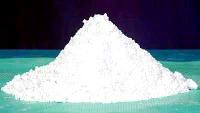
Plaster Of Paris .
4,200 - 4,400 Per Metric Ton
25 Metric Ton (MOQ)
super fine 1 grade .

Plaster Of Paris
Get Price Quote
25 Ton (MOQ)
Available all types of gypsum and plaster of paris.
Best Deals from Plaster Of Paris

Plaster Of Paris
Get Price Quote
We are engaged in the production & distribution of Plaster of Paris. The Plaster of Paris, we offer, is available in gypsum powder form. We provide the Plaster of Paris in proper packaging of varied quantity to several dealers, wholesaler & retailers. We offer the Plaster of Paris at reasonable price. Types Fine (White)Super fine (Super White)Commercial (Off White) Attributes Shrink and crack proofSets easily within fraction of secondsFree from harmful chemicalsCost effective Used In Construction industryHandicraft industryHospitals

Plaster Of Paris
Get Price Quote
25 ton Bag(s) (MOQ)
Flux Technologies PLASTER OF PARIS-CHEMICAL DATA SHEET ROYAl TOUCH Chemical Identifiers UN/NA Number CAS Number CHRIS CodeDOT Hazard Label none 26499-65-0 none data unavailable NFPA 704: data unavailable General Description White or yellowish, finely divided, odorless powder consisting mostly or entirely of calcium sulfate hemihydrate, CaSO4•1/2H2O. Forms a paste when it is mixed with water that soon hardens into a solid. Used in making casts, molds, and sculpture. Generally non-toxic. Hazards Reactivity Alerts none Air & Water Reactions No rapid reaction with air No rapid reaction with water Fire Hazard No information available. Health Hazard Exposure Routes: inhalation, ingestion, skin and/or eye contact Symptoms: Irritation eyes, skin, mucous membrane, respiratory system; cough Target Organs: Eyes, skin, respiratory system (NIOSH, 2003) Reactivity Profile PLASTER OF PARIS is non-flammable and non-combustible. Has generally low chemical reactivity but can act as an oxidizing agent under extreme conditions. Decomposes at high temperature to generate toxic oxides of sulfur. Reacts exothermically but slowly with moisture in the air or water to form gypsum CaSO4.2H2O. Belongs to the Following Reactive Group(s) Inorganic Compounds/Neither Reducing nor Oxidizing Response Recommendations Firefighting No information available. Non-Fire Response No information available. Protective Clothing Skin: No recommendation is made specifying the need for personal protective equipment for the body. Eyes: No recommendation is made specifying the need for eye protection. Wash skin: No recommendation is made specifying the need for washing the substance from the skin (either immediately or at the end of the work shift). Remove: No recommendation is made specifying the need for removing clothing that becomes wet or contaminated. Change: No recommendation is made specifying the need for the worker to change clothing after the work shift. (NIOSH, 2003) First Aid Eye: If this chemical contacts the eyes, immediately wash the eyes with large amounts of water, occasionally lifting the lower and upper lids. Get medical attention immediately. Contact lenses should not be worn when working with this chemical. Breathing: If a person breathes large amounts of this chemical, move the exposed person to fresh air at once. If breathing has stopped, perform mouth-to-mouth resuscitation. Keep the affected person warm and at rest. Get medical attention as soon as possible. Swallow: If this chemical has been swallowed, get medical attention immediately. (NIOSH, 2003) Physical Properties Molecular Formula: CaSO4 = 0.5H2O Flash Point: data unavailable Lower Explosive Limit: data unavailable Upper Explosive Limit: data unavailable Autoignition Temperature: data unavailable Melting Point: 325.0 ° F (Loses H2O) (NIOSH, 2003) Vapor Pressure: 0.0 mm Hg (approx) (NIOSH, 2003) Vapor Density: data unavailable Specific Gravity: 2.5 (NIOSH, 2003) Boiling Point: data unavailable Molecular Weight: 145.2 (NIOSH, 2003) Water Solubility: 0.3 % at 77° F (NIOSH, 2003) AEGL: data unavailable ERPG: data unavailable TEEL: data unavailable IDLH: data unavailable Regulatory Information Regulatory Names: none CAA RMP: Not a regulated chemical. CERCLA: Not a regulated chemical. EHS (EPCRA 302): Not a regulated chemical. TRI (EPCRA 313): Not a regulated chemical. RCRA Chemical Code: none Alternate Chemical Names CALCIUM SULFATE HEMIHYDRATE CRYSTACAL DENSITE DENSITE (GYPSUM) DRIED CALCIUM SULFATE DRIED GYPSUM FGR GYPSUM HEMIHYDRATE HEMIHYDRATE GYPSUM PH 200 PH 200 (FILLER) SAKURA PLASTER OF PARIS B GRADE TA 20 TIGER STONE Maruti Mineral Industries is a reliable manufacturer and supplier of Plaster of Paris, which is hugely demanded by clients. To meet the requirements of clients, we cater our Plaster of Paris as per their specifications of clients. It is durable and easily takes any shape. Used for : • Interior decoration : as a false ceiling, studio sets etc • Bandaging of broken bones • Making statues • Finishing walls • Designing of masonry interiors and exteriors Applications : • Orthopedic operations • Surgery for cast POP Bandage Mfg • Dental Molding operations • Ceramic Industries • Pottery Industries • Building Contraction • Gold Dyeing operations.

Plaster Of Paris
Get Price Quote
We are instrumental in providing Plaster of Paris to our valuable clients. Used in diverse industries and household applications, our Plaster of Paris is high on demand in the market. Snow white in color, Plaster of Paris is provided in fine and gypsum form. The Plaster of Paris can be availed at competitive prices from us. Types Fine (white)Super fine (super white)Commercial (off white) Attributes Shrink and crack proofCost effectiveFree from harmful chemicalsSets easily within fraction of seconds Used In Handicraft industryHospitalsConstruction industry

Plaster Of Paris
Get Price Quote
Plaster Of Paris

Plaster Of Paris
Get Price Quote
Plaster Of Paris

Plaster Of Paris
Get Price Quote
Plaster Of Paris